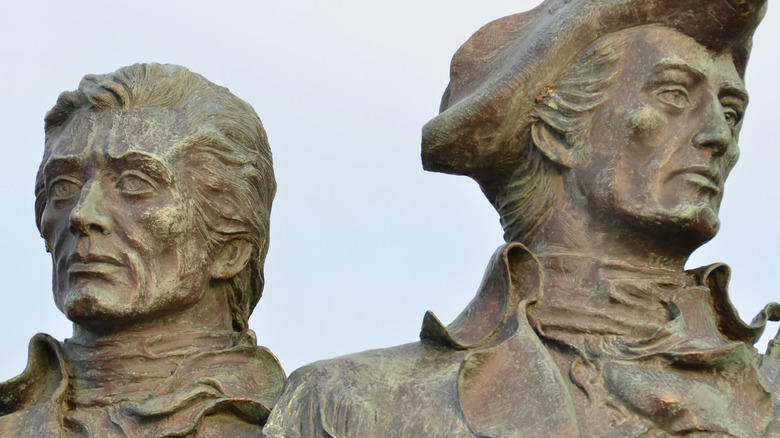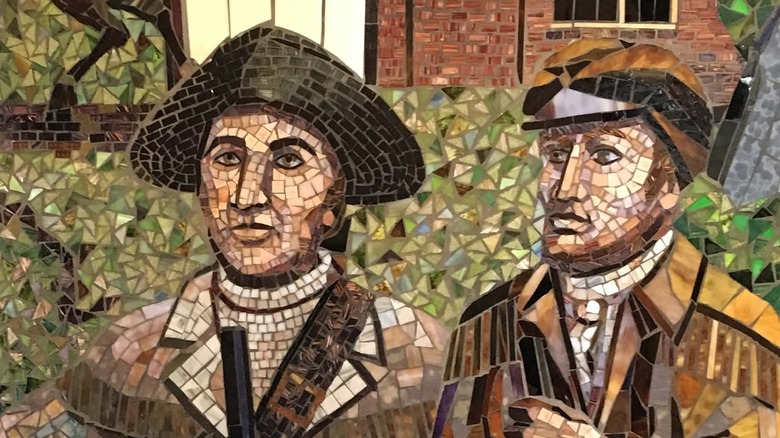This Is How Lewis And Clark First Met
Back in the early 1800s, the United States of America looked nothing at all like it does now. The "western frontier" was, at the time, right around the border of Ohio and Pennsylvania, and the country was eager to claim more of the land on the continent as quickly as it could. In 1803, everything changed when Thomas Jefferson completed the Louisiana Purchase, according to Biography, as the U.S. purchased more than 800,000 square miles of new territory. Jefferson was keen to have the area explored and mapped, and he appointed two men — Meriwether Lewis and William Clark — to assemble a team to explore the region and return to Washington with notes. To this day, much of the geographical, social, and historical fabric of the United States is tied in one way or another to the Lewis and Clark expedition.
At the time of his appointment, Lewis was serving as Jefferson's private secretary. In turn, Lewis called upon an old Army buddy to be his co-commander. The two men had met a few years earlier, when one of them came this close to being dishonorably discharged from the Army due to the fallout from a drunken brawl.
Meriwether Lewis was sent to William Clark's command for disciplinary reasons
Meriwether Lewis and William Clark both served in the Continental Army. It was a time when there was little for soldiers to do at frontier posts except drink, gamble, chase skirts, and brawl, as Bruce G. Kauffmann writes for the Tribune-Star.
One day in 1795, Lewis, then a 21-year-old with little actual interest in military life, had a few too many and, among other offenses, challenged an officer to a duel. The Army took a dim view of that sort of thing, and Lewis was soon facing a court-martial. Fortunately for the future explorer, a jury found him not guilty, but the damage had been done. His presence was no longer welcome in his unit, and he was transferred out.
According to History, his new commander was none other than William Clark, and the two men became fast friends. So strong was their friendship that, years later, when Lewis was appointed to lead an expedition west to map out the Louisiana Purchase, he asked his old friend to be his co-commander. The rest, as they say, is history — in this case, in the most literal possible sense.

